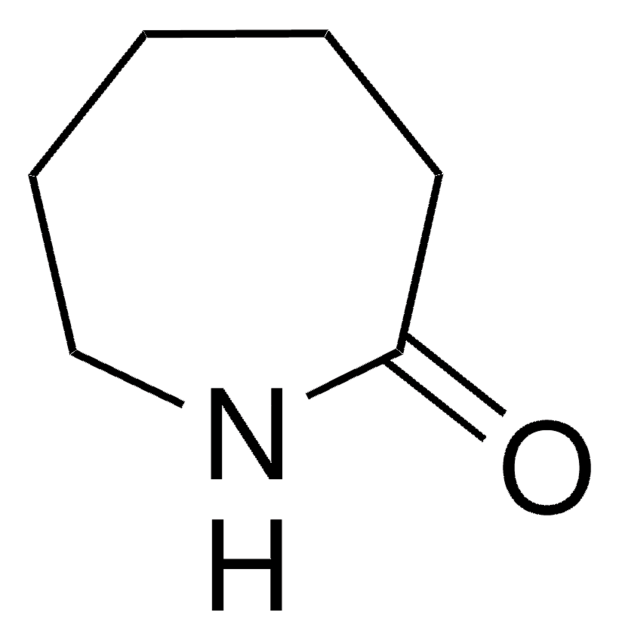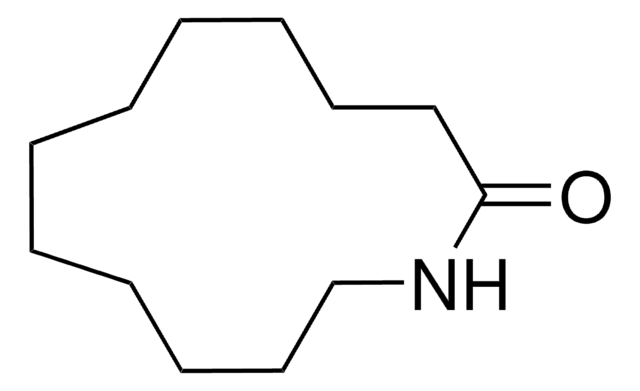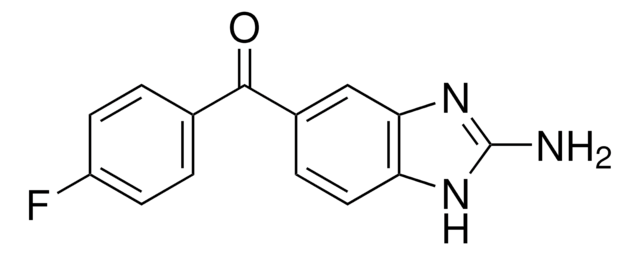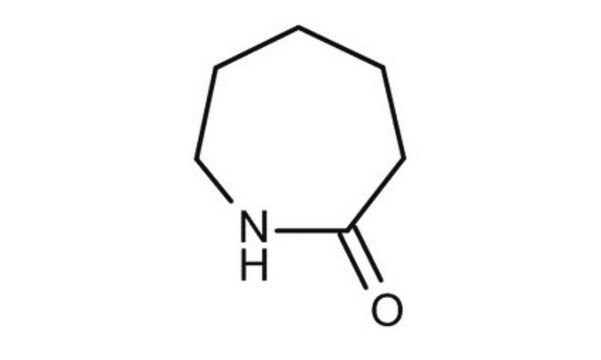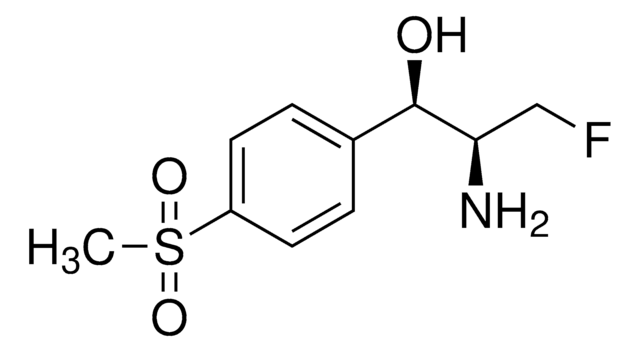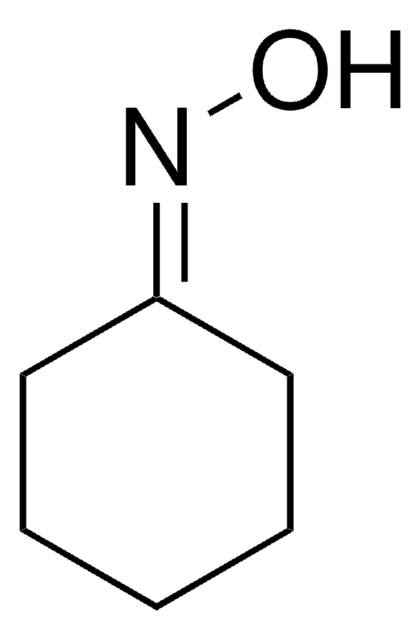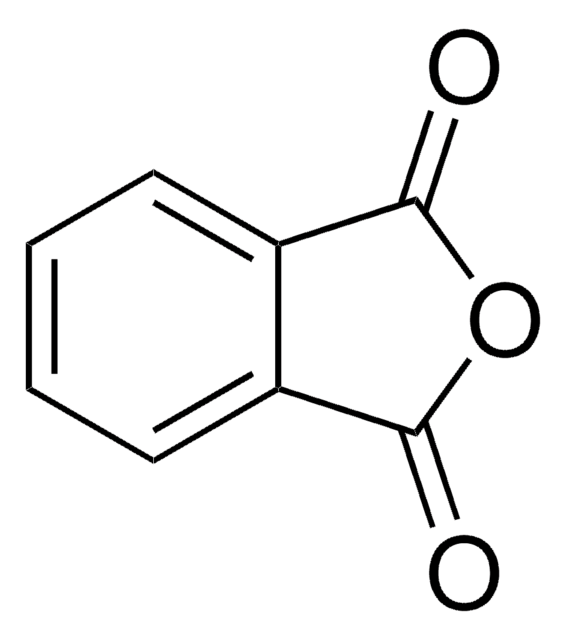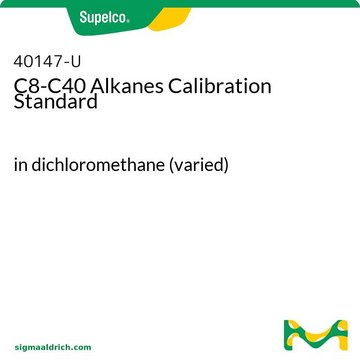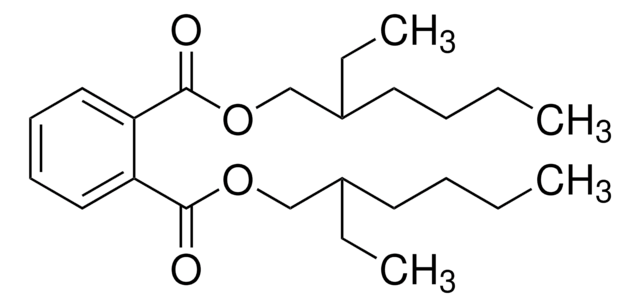77403
ε-Caprolactam
analytical standard
Synonyme(s) :
2-Oxohexamethyleneimine, Aza-2-cycloheptanone
About This Item
Produits recommandés
Qualité
analytical standard
Niveau de qualité
Pression de vapeur
<0.01 mmHg ( 20 °C)
Essai
≥99.0% (GC)
Température d'inflammation spontanée
707 °F
Durée de conservation
limited shelf life, expiry date on the label
Limite d'explosivité
8 %
Technique(s)
HPLC: suitable
gas chromatography (GC): suitable
Impuretés
≤0.5% water
pb
136-138 °C/10 mmHg (lit.)
Pf
68-71 °C (lit.)
Application(s)
cleaning products
cosmetics
flavors and fragrances
food and beverages
personal care
Format
neat
Chaîne SMILES
O=C1CCCCCN1
InChI
1S/C6H11NO/c8-6-4-2-1-3-5-7-6/h1-5H2,(H,7,8)
Clé InChI
JBKVHLHDHHXQEQ-UHFFFAOYSA-N
Vous recherchez des produits similaires ? Visite Guide de comparaison des produits
Description générale
Find all available reference materials for compounds listed in 10/2011 here
Application
Mention d'avertissement
Warning
Mentions de danger
Classification des risques
Acute Tox. 4 Inhalation - Acute Tox. 4 Oral - Eye Irrit. 2 - Skin Irrit. 2 - STOT SE 3
Organes cibles
Respiratory system
Code de la classe de stockage
11 - Combustible Solids
Classe de danger pour l'eau (WGK)
WGK 3
Point d'éclair (°F)
305.6 °F - closed cup
Point d'éclair (°C)
152 °C - closed cup
Faites votre choix parmi les versions les plus récentes :
Déjà en possession de ce produit ?
Retrouvez la documentation relative aux produits que vous avez récemment achetés dans la Bibliothèque de documents.
Les clients ont également consulté
Notre équipe de scientifiques dispose d'une expérience dans tous les secteurs de la recherche, notamment en sciences de la vie, science des matériaux, synthèse chimique, chromatographie, analyse et dans de nombreux autres domaines..
Contacter notre Service technique